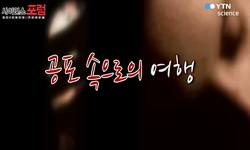영화 은 여성에 대한 '집합 기억'을 다루고 있다는 점에서 고소설 의 현대적 이본으로 간주될 수 있다. 이 논문은 에서 수미의 기억 행위에 내재된 우리 사회의 집합 기억은 무엇이며, 그것은...
http://chineseinput.net/에서 pinyin(병음)방식으로 중국어를 변환할 수 있습니다.
변환된 중국어를 복사하여 사용하시면 됩니다.
- 中文 을 입력하시려면 zhongwen을 입력하시고 space를누르시면됩니다.
- 北京 을 입력하시려면 beijing을 입력하시고 space를 누르시면 됩니다.
 OpenAccess
OpenAccess
영화 에서 여성에 대한 기억과 실제 : 고소설 이본 연구 관점에서 = The Memory and the Real of woman in the Film "Janghwah, Hongryun"
한글로보기https://www.riss.kr/link?id=A100214920
- 저자
- 발행기관
- 학술지명
- 권호사항
-
발행연도
2007
-
작성언어
-
-
주제어
장화홍련전 ; 장화홍련 ; 집합 기억 ; 원혼 ; 미장아빔 ; 계모형 가정소설 ; 환상 ; 죄의식 ; 공포 ; Janghwah Hongryun Jeon ; collective memory ; ghost ; mise en abyme ; fantasy ; fear
-
KDC
810
-
등재정보
KCI등재
-
자료형태
학술저널
- 발행기관 URL
-
수록면
71-91(21쪽)
- 제공처
-
0
상세조회 -
0
다운로드
부가정보
국문 초록 (Abstract)
영화 은 여성에 대한 '집합 기억'을 다루고 있다는 점에서 고소설 의 현대적 이본으로 간주될 수 있다. 이 논문은 에서 수미의 기억 행위에 내재된 우리 사회의 집합 기억은 무엇이며, 그것은 정당한지를 분석했다. 에서 아버지 무현은 '더러운 손'을 가진 인물이다. 즉, 그는 병든 아내를 두고 바람이 났으며 그래서 아내는 자살하고 우연히 작은딸은 죽게 된 것이다. 아버지는 이런 현실을 부도덕한 것으로 이해한다. 하지만 그는 자신의 행위 때문에 빚어진 수연의 심리적 공포와 환상에는 무지하다. 오히려 그 공포와 환상을 '병증'으로 간주하며, 자신의 '부도덕함의 어쩔 수 없음'을 받아들이라고 수연에게 요구한다. 즉, 에서 아버지의 죄책감은 실상 아버지의 통제할 수 없는 성욕을 은폐하는 수단일 뿐이다. 이런 은폐를 가능하게 하는 것이야말로 남성 이기주의이다. 에서 초현실적 존재는 여성 가족과 수미의 환상에서만 등장한다. 따라서 어머니와 수연의 죽음을 막지 못했다는 온정주의에서 그 초현실이 비롯되었다고 해명할 수는 없다. 오히려 원혼과 같이 '억눌린 존재들'을 현실로 불러오는 것이 여성들만이라는 사실은 여성들이 자신의 성 정체성을 두려워하고 있음을 암시한다. '생리하는 원귀'는 그러한 불안 심리의 반영이다. 즉, 가정에서 여성이란 언젠가는 엄마처럼 목을 매어야 한다는 존재임을 수미는 체험했고, 여성성에 대한 이런 자학적 공포에서 원귀는 귀환하게 되는 것이다. 에서 수미의 환상과 공포를 누구도 이해하지 못 하기에 수미는 병원과 집을 오고가게 된다. 즉, 수미는 치료와 재발의 무한 반복 속에 갇히게 된 것이다. 이러한 미장아빔은 수미의 공포를 병증으로 간주하는 남성 중심적 현실에서 기인한다. 그리고 수미의 죄의식에 병증이라는 이름을 붙임으로써 아버지의 욕망과 현실은 대속(代贖)된다.
다국어 초록 (Multilingual Abstract)
The film "Janghwah, Hongryun" can be considered as a text of old Korean novel . Because the flim deal with the collective memory of woman. I analyzed the film to know what the collective memory which in Soomi's memory acting is, and whether that is ri...
The film "Janghwah, Hongryun" can be considered as a text of old Korean novel . Because the flim deal with the collective memory of woman. I analyzed the film to know what the collective memory which in Soomi's memory acting is, and whether that is right. In "Janghwah, Hongryun", father Moohyun is a dirty one. When wife had been sick, he meet another woman. So his wife suicided, and his little daughter was dead by chance. The father understand such situation is immoral. Yet, he is ignorant about his daughter Soomi's fear and fatasy which is derived from his immoral act, rather he regard that as a symptom of disease. And he demand her to accept a immoral thing as the inevitable real. In "Janghwah, Hongryun", the supernatural beings appear to female family and in the fantasy of Soomi. Therefore we can not elucidate that the supernatural beings are derived from the paternalism that the family were not able to protect the death of mother and Sooyun. On the contrary, the fact that only female family call the 'the depressed beings' to the present suggest that women are afraid of their sexual identity. 'Ghost of menstruating' is a reflection of such anxiety. In "Janghwah, Hongryun", nobody can understand Soomi's fantasy and fear, Soomi has to come and go to a hospital and home. So, Soomi has been cofined to a infinite repetition of cure and relapse. This 'mise en abyme' is derived from a male-dominated society in which Soomi's fear is treated as a sickness. Father's desire is redeemed by calling Soomi's memory a desease.
목차 (Table of Contents)
- 국문초록
- 1. 여성에 대한 '집합 기억'과 이본군
- 2. 영화 분석의 전제
- 3. 아버지의 더러운 손
- 4. 수미의 죄의식
- 국문초록
- 1. 여성에 대한 '집합 기억'과 이본군
- 2. 영화 분석의 전제
- 3. 아버지의 더러운 손
- 4. 수미의 죄의식
- 5. 미장아빔에 갇힌 여성
- 참고문헌
- Abstract
동일학술지(권/호) 다른 논문
-
- 한국고전여성문학회
- 김세은(Kim Sae eun)
- 2007
- KCI등재
-
- 한국고전여성문학회
- 이현경(Lee Hyun kyung)
- 2007
- KCI등재
-
- 한국고전여성문학회
- 정창권
- 2007
- KCI등재
-
- 한국고전여성문학회
- 최혜진(Choi Hye jin)
- 2007
- KCI등재




 스콜라
스콜라





